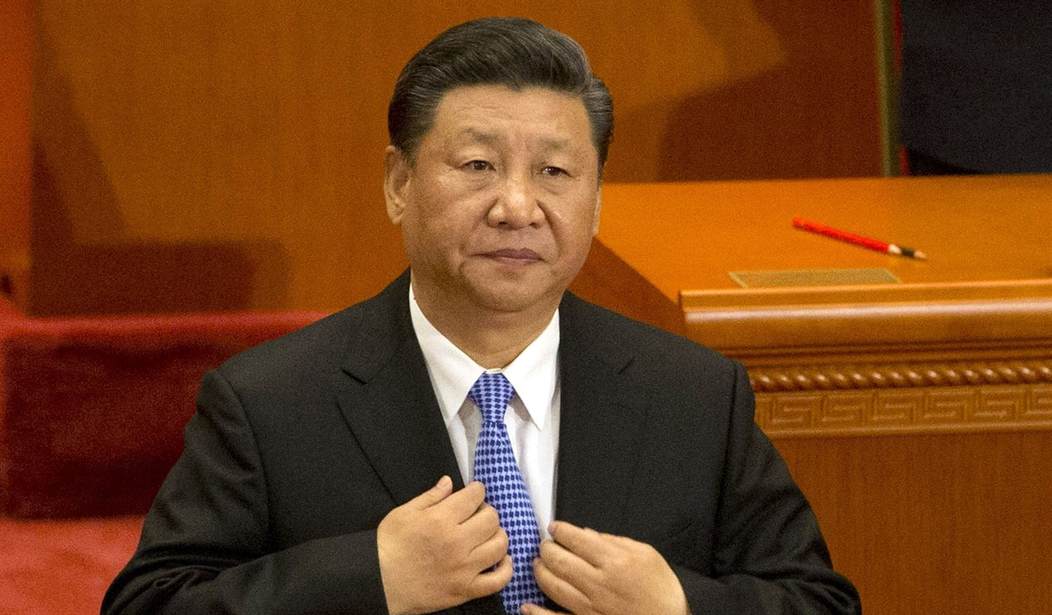Top News
China’s economic crisis is real and it’s spectacular

I admit to being a bit obsessed with this story and I’ll also admit the reason is largely schadenfreude. I’m enjoying seeing China’s arrogant nationalists, the communist apparatchiks who believe the party knows what’s best for everyone getting humbled by the simplest of problems: economic reality. After seizing the freedom of millions of people in Hong Kong and threatening to do the same to Taiwan, China suddenly finds itself facing a severe crisis of confidence.
For much of the past four decades, China’s economy seemed like an unstoppable force, the engine behind the country’s rise to a global superpower. But the economy is now plagued by a series of crises. A real estate crisis born from years of overbuilding and excessive borrowing is running alongside a larger debt crisis, while young people are struggling with record joblessness. And amid the drip feed of bad economic news, a new crisis is emerging: a crisis of confidence.
A growing lack of faith in the future of the Chinese economy is verging on despair. Consumers are holding back on spending. Businesses are reluctant to invest and create jobs. And would-be entrepreneurs are not starting new businesses.
“Low confidence is a major issue in the Chinese economy now,” said Larry Hu, chief China economist for Macquarie Group, an Australian financial services firm…
In the past few weeks, investors have pulled more than $10 billion out of China’s stock markets. On Thursday, China’s top securities regulator summoned executives at the country’s national pension funds, top banks and insurers to pressure them to invest more in Chinese stocks, according to Caixin, an economics magazine.
Things are bad and China’s response has been to stop publishing the bad data. They stopped publishing youth unemployment data this month and stopped publishing consumer confidence data earlier this summer. But the cover-up isn’t working this time.
The real bright spot in this current crisis is that the blame falls on the person making all of the decisions: Xi Jinping.
The Chinese Communist Party’s legitimacy still relies heavily on ordinary Chinese feeling their lives are improving, and Xi knows that, said Ling Chen, an assistant professor at the School of Advanced International Studies at Johns Hopkins University.
“So far nobody can challenge him politically. But economic performance is always the very core of the regime’s legitimacy and that affects how well he can govern the country,” Chen said.
Now Xi has replaced promises of material wealth with demands for political loyalty, and told young people to suck it up and “eat bitterness” for the good of the nation…
“That is an Achilles’ heel politically for Xi,” [former CIA officer Randall] Phillips said, because Xi has ultimate responsibility for China’s economic predicament — and coming up with the solution.
During the 2008 financial crisis, China’s solution was to goose the economy with more stimulus spending. That worked in the short run but also created a lot of debt. Xi could try that again but unsustainable debt creates its own problems. He also can’t rely on foreign investment given that he seems to be cracking down on information gathering by foreign companies. These look like mistakes but maybe they are just a shift in China’s goals.
Why does the government keep making mistakes? One reason is that short-term growth is no longer the priority of the Chinese Communist Party (ccp). The signs are that Mr Xi believes China must prepare for sustained economic and, potentially, military conflict with America. Today, therefore, he emphasises China’s pursuit of national greatness, security and resilience…
The fact that China’s problems start at the top means they will persist. They may even worsen, as clumsy policymakers confront the economy’s mounting challenges. The population is ageing rapidly. America is increasingly hostile, and is trying to choke the parts of China’s economy, like chipmaking, that it sees as strategically significant. The more China catches up with America, the harder the gap will be to close further, because centralised economies are better at emulation than at innovation.
There’s a good chance China is facing a demographic crisis with an aging and also a shrinking population. The one child policy is no longer in place but we’re beginning to feel its effects.
The real question is how long young people in China will continue to settle for a one-party authoritarian government as it becomes clear that the government can’t deliver a better future. How long before another Tiananmen-style uprising?
Read the full article here


















